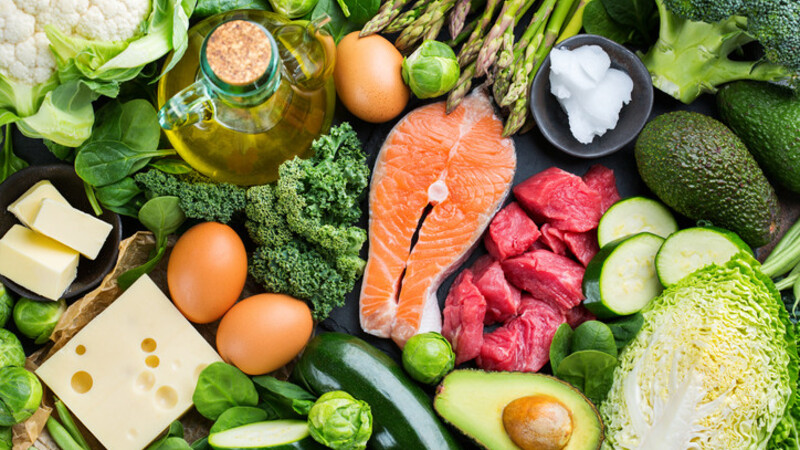The Power of Low Carb Foods: Good for Healthier Living
Low carb food has gained a lot of attention in a society where nutrition and health are becoming more and more important topics. The appeal of low carb foods is evident since they provide the potential for weight loss, increased energy, and enhanced general health. But what are low carb foods really, and what health benefits may they offer?
In this piece, we examine the foundations of low-carb eating, including its possible benefits, important dietary choices, and useful advice for effective application. It’s important to comprehend the fundamentals of low carb diets whether your goal is to lose weight or just live a healthy lifestyle. Come along as we reveal the strategies for maximizing the health and well-being benefits of low carb diets.
Benefits of Low Carb Foods Eating
For a variety of reasons, including better metabolic health and weight loss, low-carb diets have become more and more popular. Here, we explore the many advantages of implementing a low-carb eating strategy:
Weight Loss and Management:
The main reason low-carb diets work for weight loss is that they curb hunger and increase feelings of fullness. Limiting carbohydrates makes the body burn fat that has been stored as fuel, which eventually results in increased fat loss.
Low Carb Foods Improved Blood Sugar Control:
Reducing carbohydrate intake can help stabilize blood sugar levels and increase insulin sensitivity in people with diabetes or insulin resistance.
Low-carb diets have the potential to lower fasting blood sugar levels and lessen the need for medication to control diabetes.
Low Carb Foods Increased HDL Cholesterol:
Low-carb diets have been shown to increase HDL (high-density lipoprotein) cholesterol, which is linked to a lower risk of heart disease.
An improved cholesterol profile could lead to improved cardiovascular health in general.
Low Carb Foods For Better Brain Function:
According to certain studies, low-carb diets may enhance memory, focus, and concentration, among other cognitive functions.
Low-carb diets may promote brain health and function by supplying a consistent amount of ketones, which are a result of fat metabolism.
Low Carb Foods Stable Energy Level:
Low-carb diets encourage stable blood sugar levels and sustained energy throughout the day, in contrast to diets heavy in refined carbs, which can lead to energy dumps and lethargy. Those who avoid the high-carb meal peaks and crashes may find that their energy levels are more stable and that their productivity is increased.
Top Low Carb Food Choices

Leafy Greens:
Leafy greens are high in vitamins, minerals, and fiber and extremely low in carbs. Examples of these greens are Swiss chard, spinach, kale, and lettuce. Blend them into smoothies for an added nutritional boost, or use them as the foundation for salads, omelets, and stir-fries.
Cruciferous Vegetables:
Broccoli, cauliflower, Brussels sprouts, cabbage, and other healthy vegetables are great options for a low-carb diet since they are high in fiber and low in carbohydrates. You can roast, sauté, or just eat them raw as a crispy snack with dip.
Avocados:
Avocados are a great complement to a low-carb diet since they are low in carbohydrates and high in beneficial fats. Eat avocado sliced on salads, put it on low-carb bread for toast, or whip up a creamy avocado dressing to go with your favorite recipes.
Berries:
Packed with fiber and antioxidants, berries like strawberries, blueberries, raspberries, and blackberries have comparatively low carb counts. Savor them as a snack on their own, mix them into smoothies or yogurt, or sprinkle them over low-carb healthy desserts.
Eggs:
Eggs are a low-carb, high-protein, and vitamin and mineral-rich item that may be eaten in a variety of ways. For a filling and low-carb supper, try eggs poached, boiled, scrambled, or incorporated into an omelet with lots of vegetables.
Fatty Fish:
Omega-3 fatty acids and protein are abundant in fatty fish, such as salmon, mackerel, trout, and sardines, and they contain few carbs.
For a wholesome dinner, bake, pan-sear, or grill fatty fish fillets and serve them with low-carb veggies on the side.
Nuts and Seeds:
High in fiber, protein, and good fats, nuts and seeds like flaxseeds, walnuts, chia seeds, and almonds are perfect low-carbohydrate snacks. Snacking on a handful of nuts or seeds is a great idea. You can also add them to salads, yogurt, or homemade low-carb granola or energy bars.
Greek Yogurt:
Greek yogurt is a good choice for a low-carb diet because it has more protein and fewer carbohydrates than ordinary yogurt.
Eat Greek yogurt with fresh berries, make smoothies with it as the base, or add it to sauces and dressings to give them a creamier texture.
You can make tasty and filling meals while controlling your carbohydrate intake by using these best low-carb foods in your diet. Try out a variety of recipes and meal combos to see what suits your nutritional requirements and tastes the best.
Tips for Incorporating Low Carb Foods into Your Lifestyle
A low-carb lifestyle might be difficult to adopt, but with the correct techniques and attitude, it can be a rewarding and long-lasting eating pattern. The following advice will help you successfully incorporate low-carb foods into your everyday routine:
Gradual Transition:
Cut back on carbohydrates gradually over time as opposed to drastically all at once. This makes it easier for your body to adjust and less likely that you’ll have strong cravings or withdrawal symptoms.
Focus on Whole Foods:
Give complete, unprocessed foods like fish, eggs, lean meats, non-starchy vegetables, nuts, seeds, and healthy fats priority in your diet. These foods are perfect for a low-carb diet since they are naturally low in carbohydrates and full of important nutrients.
Read Food Labels:
Observe food labels and ingredient lists to spot added sugars and starches, which are hidden sources of carbs. Seek for goods with easily pronounceable components and little added sugar.
Plan Ahead:
Make sure you have low-carb options on hand for those times when hunger strikes by giving your meals and snacks careful thought. Meal planning and batch cooking can help you save time and maintain your low-carb diet.
Examine Low Carb Foods Alternatives:
Try substituting your favorite high-carb foods with low-carb options. For instance, replace regular rice or pasta with zucchini noodles or cauliflower rice, and replace bread with cloud bread or lettuce wraps.
Stay Hydrated:
Throughout the day, sip on lots of water to stay hydrated and reduce cravings. It’s common to confuse thirst with hunger, so try to consume eight glasses of water or more each day.
Low Carb Foods Include Protein with Every Meal:
Make sure every meal and snack includes some form of protein because it keeps you feeling full and content. Meat, poultry, fish, eggs, tofu, and plant-based protein sources like nuts and legumes can all fall under this category.
Observe your reactions to various foods and modify your diet accordingly. Since everyone has a different threshold for carbohydrates, determine the balance that is best for your body and way of life.
Be Persistent and Patient:
Making the switch to a low-carb lifestyle is a journey, and roadblocks are common. Practice self-compassion and concentrate on gradually implementing minor yet enduring adjustments. Reward yourself for your accomplishments and keep pursuing your wellness and health objectives.
Conclusion
In summary, the growing popularity of low carb foods is indicative of a growing interest in nutrition and health. These diets have many advantages, such as reduced body weight, steady energy levels, better blood sugar regulation, lower cholesterol, and increased cognitive performance.
You may make tasty and nourishing meals while controlling your carbohydrate intake by adding great low-carb foods like leafy greens, cruciferous vegetables, avocados, berries, eggs, fatty salmon, nuts, seeds, and Greek yogurt to your meals.
A low-carb lifestyle takes time, preparation, and perseverance to adopt, but with little adjustments, whole foods, mindful eating, and enough water, it may develop into a rewarding and long-lasting eating pattern for better general health and well-being.
You Can Read More About Foods
Unlock Your Day with Delicious Healthy Breakfast Foods
Ultimate Guide to Healthy Foods to Lose Weight Journey
Gut Healthy Foods: Nourish Your Microbiome for Vibrant Well-being
